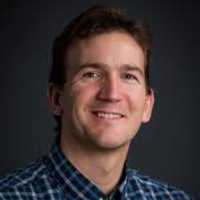
Associate Professor
Adrian T. Keatinge-Clay
- Courses3
- Reviews9
- School: University of Texas
- Campus: Austin
- Department: Chemistry
- Email address: Join to see
- Phone: Join to see
-
Location:
1 University Station
Austin, TX 78712 - Dates at University of Texas: October 2015 - December 2019
- Office Hours: Join to see
N/A
Would take again: No
For Credit: Yes
0
0
Mandatory
Poor
This class was unnecessarily difficult and fast, it is the type of course where the averages are below 40 so there is an insane curve. The first test covered the ENTIRE first textbook, the whole thing. Then we started to read the next book. I won't use this class and it ruined my semester. He is a nice guy but has a terrible class. Would NOT recommend.
Biography
University of Texas Austin - Chemistry
Ph.D., University of California at San Francisco (2004)
B.S., Stanford University (1999)
University of California at San Francisco (2004-2008)
Research Interests
Natural Product Biochemistry
Many important pharmaceuticals, including the antibiotic erythromycin and the immunosuppressant rapamycin, belong to a diverse class of molecules called polyketides. These complex molecules are synthesized by modular polyketide synthases (PKSs) - enormous enzymes that are directly analogous to assembly lines. Our group seeks to understand this chemical machinery and engineer it to produce new molecules and new medicines.
Biosynthesis
Each enzyme within these megasynthases operates on a polyketide only once during its synthesis. Transformations catalyzed by PKS enzymes include carbon-carbon bond formation, cyclizations, and stereospecific reductions and eliminations. Our research attempts to determine the mechanisms and specificities of each enzyme type in order to genetically engineer PKSs to make both derivatives of known polyketides and libraries of completely novel polyketides.
Biophysics
The domain boundaries of enzymes within PKSs have recently been identified, enabling structural studies of isolated domains. The atomic resolution structures of PKS enzymes help build a description of the overall PKS assembly line architecture. They also help elucidate what interactions between PKS enzymes and their substrates are required for correct polyketide processing. The structures of several key PKS enzymes remain to be determined.
Biocatalysis
PKSs are the enzymatic champions of organic synthesis, performing complex, stereocontrolled reactions on diverse carbon chains. Our lab is learning how to harness the catalytic potential of isolated PKS enzymes and utilize them to perform desirable chemical transformations. As PKS biocatalysts are catalytically active under ambient conditions in an aqueous environment, they can be considered a new paradigm in “green chemistry.”
Resume
2000
Adrian
Keatinge-Clay
University of California
San Francisco
University of Texas at Austin
Assistant Professor
University of California
San Francisco
Ph.D.
Biophysics
1995
B.S.
Chemistry
Biology
Possible Matching Profiles
The following profiles may or may not be the same professor:
- Adrian T Keatinge-Clay (60% Match)
Associate Professor
University of Texas at Austin - University Of Texas At Austin
